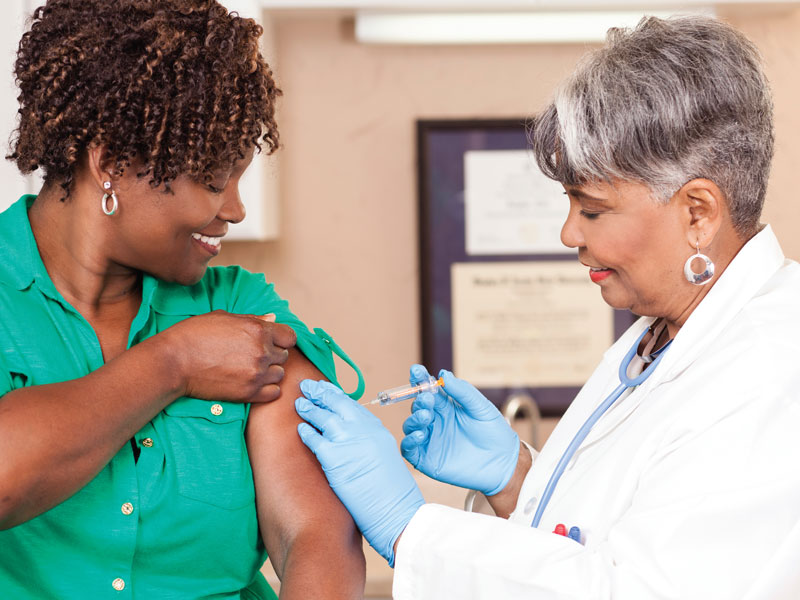FDA Requests Withdrawal of All Ranitidine Products

On April 1, 2020, the U.S. Food and Drug Administration asked manufacturers to withdraw all prescription and over-the-counter (OTC) ranitidine drugs from the market immediately.
New Nursing Research Sheds Light on Chemotherapy Safety

Chemotherapy is one of the most successful forms of cancer treatment available, but it’s frequently thought of as deadly and dangerous because of its hazardous chemical properties and potential for severe side effects in patients. What’s often left out of the chemotherapy conversation is the danger it poses to healthcare workers handling the hazardous medications. In two new articles published in the Oncology Nursing Forum, Oncology Nursing Society (ONS) member AnnMarie Walton, PhD, MPH, RN, OCN®, CHES, assistant professor in the School of Nursing at Duke University in Durham, NC, helped healthcare professionals understand the risks and needs for proper safe handling for chemotherapy.
White House: We Need the American People’s Help to Fight Coronavirus

With almost daily public briefings, the White House is taking a more aggressive approach to communicating updates on the COVID-19 coronavirus to the American population.
- Read more about White House: We Need the American People’s Help to Fight Coronavirus
- Add new comment
Once a Nurse, Always a Nurse

“Desperate times breed desperate measures." —William Shakespeare
Today is an unprecedented time in history: the COVID-19 coronavirus has changed the world as we know it. The United States faces a challenge unlike anything we’ve ever experienced, especially on our soil. We will lose many lives. Living in New Rochelle, NY, has made me acutely aware of this, perhaps before many other parts of the country.
CDC Releases Healthcare Professional Preparedness Checklist for COVID-19

Although many federal health agencies are involved in the COVID-19 coronavirus pandemic, central to every discussion has been the Centers for Disease Control and Prevention (CDC). Charged with the safety of the American public’s health, CDC is spearheading the United States’ epidemiologic approach, including how healthcare workers should recognize, test for, report, and respond to the coronavirus.
- Read more about CDC Releases Healthcare Professional Preparedness Checklist for COVID-19
- Add new comment
NINR Acting Director Responds to COVID-19 Pandemic

Tara Schwetz, PhD, acting director of the National Institute of Nursing Research (NINR), issued a statement acknowledging the role of nurses as more essential than ever to patient care during the COVID-19 coronavirus pandemic.
Geographic Disparities in Cancer Care

As part of a larger understanding of the social determinants of health, geography—whether it’s rural or metropolitan, urban or suburban—plays a huge part in how patients understand, receive, and access care. Regardless of zip code, community, or travel distance, patients have a right to receive the best possible care for their cancer diagnosis. As staunch patient advocates, oncology nurses are primed to help patients navigate geographic disparities and overcome challenges they face in treatment.
Healthcare Leaders Release Open Letter on Coronavirus; Nurses Share Realities of COVID; Hospitals Use Telemedicine Amid Pandemic

A day after President Donald Trump was considering lifting some of the quarantine mandates, healthcare leaders from the American Hospital Association, American Medical Association and American Nurses Association (ANA) released an open letter urging Americans to stay home.
- Read more about Healthcare Leaders Release Open Letter on Coronavirus; Nurses Share Realities of COVID; Hospitals Use Telemedicine Amid Pandemic
- Add new comment
FDA Approves Durvalumab for Extensive-Stage Small Cell Lung Cancer

On March 27, 2020, the U.S. Food and Drug Administration (FDA) approved durvalumab (Imfinzi®) in combination with etoposide and either carboplatin or cisplatin as first-line treatment of patients with extensive-stage small cell lung cancer (ES-SCLC).
Genomic Classifier Predicts Breast Cancer Radiation Benefit, Recurrence Risk

The Adjuvant Radiotherapy Intensification Classifier (ARTIC) predicts which women with early-stage breast cancer will benefit the most from radiotherapy, as well as their risk for locoregional recurrence after radiation, researchers reported in study findings published in the Journal of Clinical Oncology.





